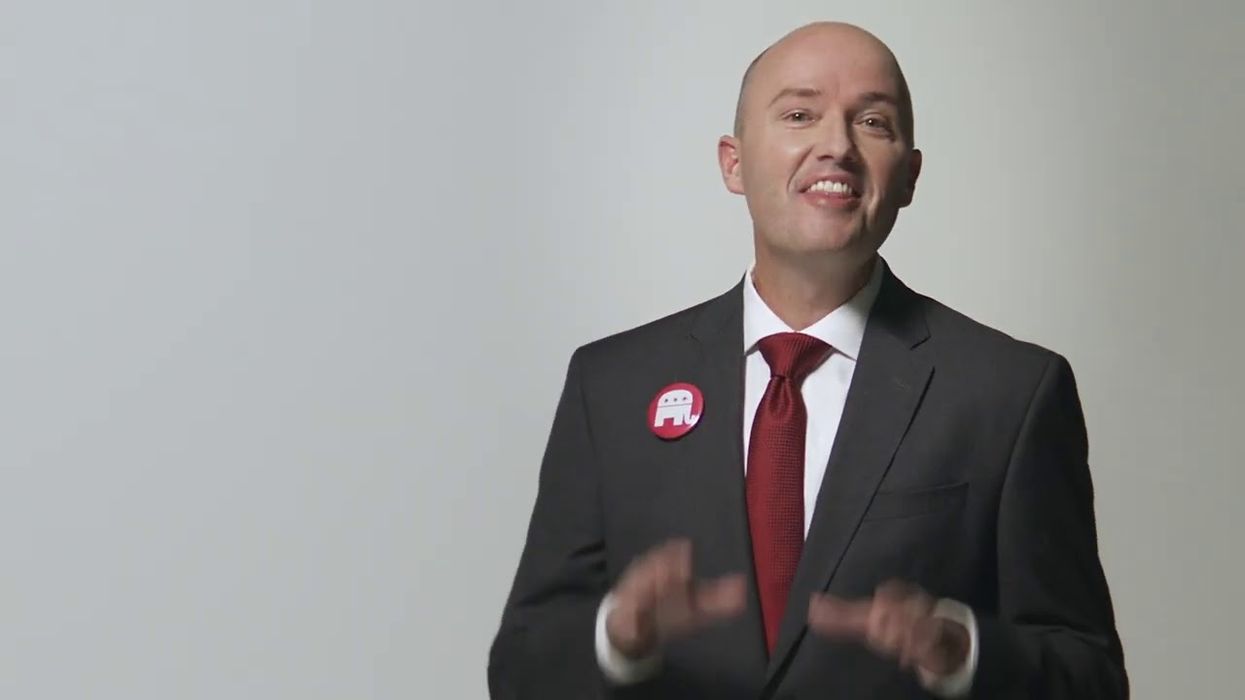Griffiths is the editor of Independent Voter News, where a version of this story first appeared.
Voters are constantly inundated with the back and forth mudslinging between candidates of the two major parties. The rhetoric on the campaign trail, on the airwaves and on social media has spiraled down to dangerously toxic levels, and things are only getting worse.
And in the middle of that vortex now stand the two people who want to be Utah's next governor. In some of the most alarming footage of this extraordinary political year, they're appearing on camera together in hopes of showing the country that there is a better way.
Republican Lt. Governor Spencer Cox and his Democratic rival, law professor Chris Peterson, took time during the campaign to collaborate on an advertisement pleading for civility in the 2020 election — and another encouraging the peaceful transition of power.
"We can debate issues without degrading each other's character," says Cox, who's the heavy favorite in one of the nation's most conservative states.
"We can disagree without hating each other," adds Peterson, who's making his first bid for office.
They further express that no matter who wins, they will work together, and together they can set the right example for the rest of the country. It is a refreshing sentiment as tensions rise just a dozen says from Election Day.
In the other 30-second spot, both commit to supporting a peaceful transition of power in the presidential election, something President Trump has declined to do because he believes that mail-in voting will become a hotbed of fraud.
Peterson: "Whether you vote by mail or in person, your vote determines the outcome."
Cox: "And then, we commit to a peaceful transition of power."
Peterson: "It's the very foundation of our country."
Cox: "And we ask that you stand with us."
The cost of making the PSAs were shared by the two campaigns and the ads are being offered to media outlets across Utah to air for free — but the spots have become internet sensations and been aired with adoring commentary around the world by the BBC.
Visit IVN.us for more coverage from Independent Voter News.






















Trump & Hegseth gave Mark Kelly a huge 2028 gift